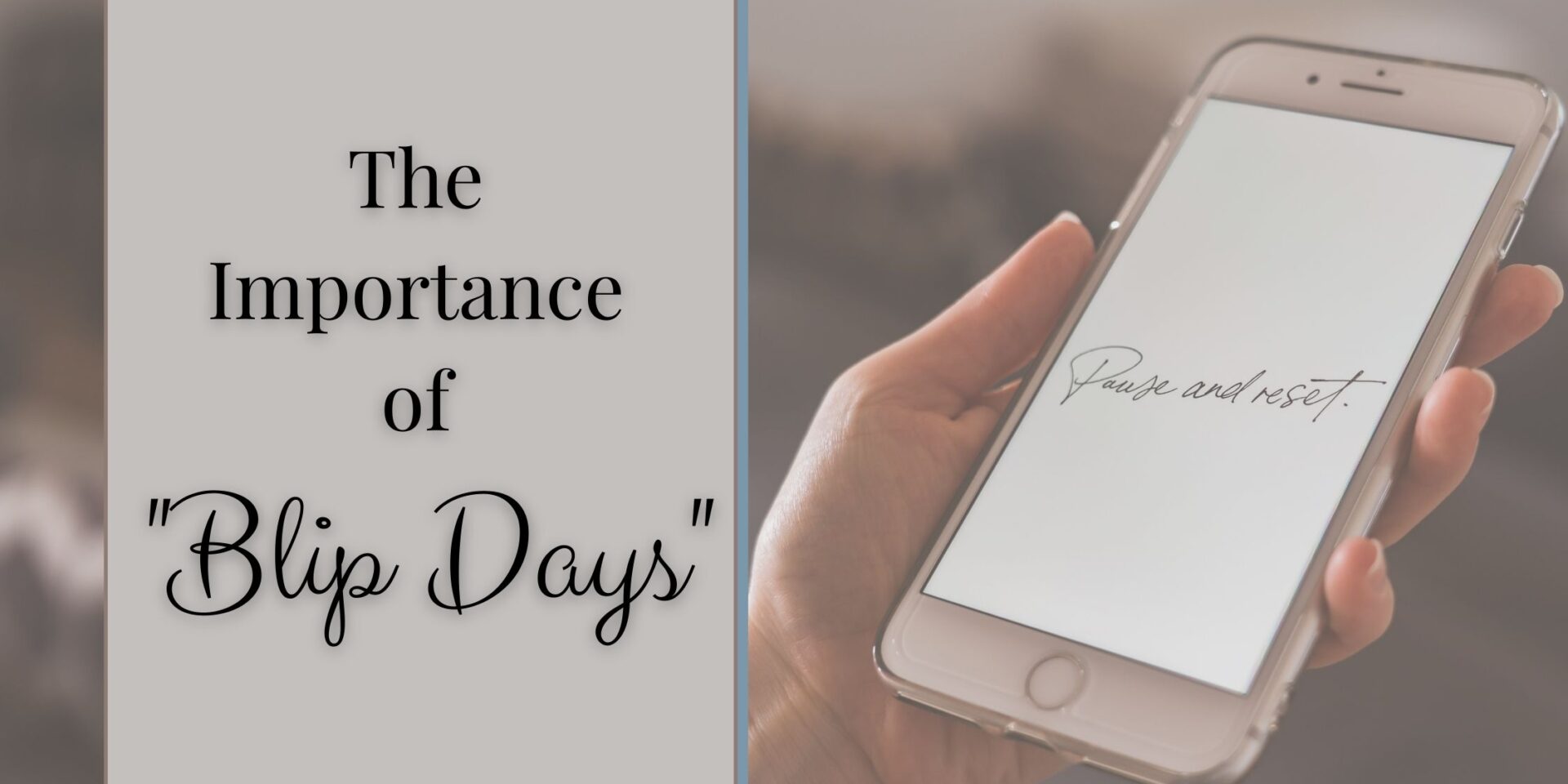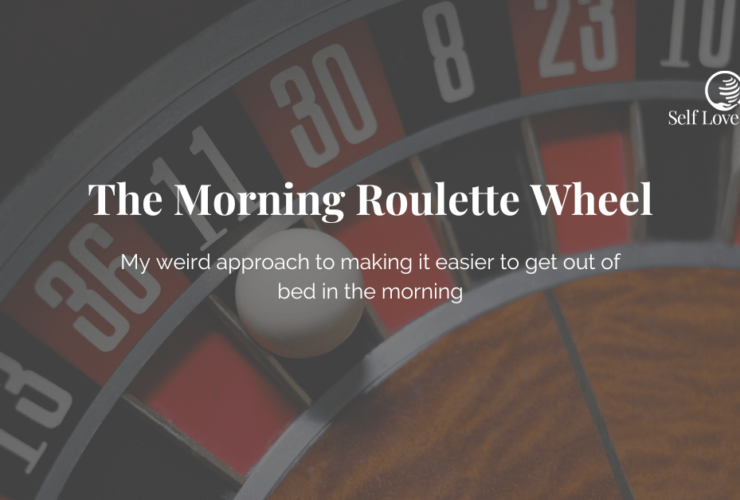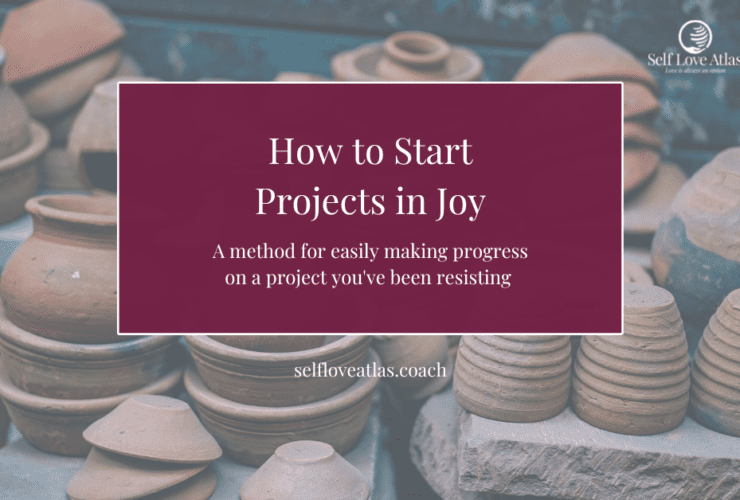The Importance of “Blip Days”
Before I get into an in-depth explanation of what blip days are, imagine this:
You’ve recently decided to start a new routine or habit. On day one, you tell yourself, “From here on out, I will do this every single day, and in (insert amount of time), I will achieve (insert goal).”
A week goes by, and you’ve made it thus far. But it seems like every day it gets just a little bit harder to “do the thing.”
One day, you think about doing it, and get a heavy feeling in your chest. You think, “Geez. That thing is totally unappealing to me right now.”
Then, you just don’t do it.
For many people, this is the point at which they quit their goal. But for you, it doesn’t need to be that way. Instead, consider taking a blip day.
What is a Blip Day?
You’ve likely heard the phrase “cheat day” in the context of dieting and workouts. A “blip day” is synonymous to a “cheat day”… almost.
In my mind, there are two main differences.
1. Using the phrase “blip day” could work for any habit or routine.
Many people associate “cheat days” strictly with dieting or workouts, but blip days could apply to anything (for example, sleep schedule, reading habits, daily meditation, you name it).
Yesterday, I struggled for hours trying to convince myself to write a new post, but my heart wasn’t in it. So I took a blip day for my writing.
Notice I said I took a day “for my writing” not “from my writing.” Blip days should always aid your ability to pursue your goals, not set you back or erase your progress. This involves admitting to yourself when you need a day to recharge. So you’ll be better able to participate the next day.
Taking a blip day is about doing whatever you need to do to get in the right headspace to continue your goal (this means different things for each person, so consult yourself on what this means to you.)
2. Replacing the word “cheat” with “blip” removes the negative connotation.
I genuinely take issue with the term “cheat days” because the word “cheat” usually implies someone has done something wrong. (Can you think of any instance in which the word cheat was used in a positive way? Off the top of my head, I can’t).
Some people might argue “that’s just semantics, the label doesn’t matter.” But I beg to differ.
Even if you know that cheat days can be a good thing, your subconscious mind will still tend to associate the concept with negativity, and thus set a trend towards negative self-talk.
If our subconscious suggests that we’ve “done something wrong” anytime we temporarily stray away from our routines, it becomes increasingly hard to be compassionate towards ourselves as we learn the ropes of it.
The word “Blip,” however, has a more neutral connotation. “Blip” is more like a pause. When we think about a blip in any other context, blips typically don’t negatively affect whatever happens after them. They’re “just a blip.”
So “blip” doesn’t imply that pauses or breaks are a bad thing. Instead, it normalizes the fact that pauses in our routines happen sometimes. The word is forgiving and neutral instead of judgemental and negative.
In short, if you’re looking to train yourself to be more accepting of your breaks, try switching up your language.
Why Should I have Blip Days?

At least once in your life, you’ve likely stumbled across some hardcore workouts that say “90 DAYS,” “DRINK A GALLON OF WATER,” “NO CHEAT DAYS,” “NO EXCUSES.” (usually in all caps and bolded).
These workouts always make me laugh because, although they may be wonderful for the small percentage of people who are naturally high energy go-getters, this type of regimen is extremely difficult for us “average energy” or “below-average energy” folks.
Most people are just trying to get through the day, so very few have motivation consistent enough to sustain a routine like that every single day without any breaks, ever.
(Yes I am aware that those workouts often have rest days planned, but most people’s need for a recharge mentally and emotionally will not always align with those scheduled days).
No, for most of us, blip days are not only hard to avoid, but necessary.
Being Hard on Yourself Increases the Chances You’ll Give up
It is very tempting to be hard on ourselves when we miss a day in our routine. But the truth is, the way we treat ourselves when we miss a day has far more potential to thwart our goals than a “blip day” ever could.
When we’re pursuing any goal, our thoughts and feelings about our ability or capacity to achieve that goal really matters. In fact, according to the dominant theory of motivation, Self-Determination Theory, feeling effective and able to achieve a goal (i.e. competence) is one of the three essential needs a person must have met if they want to experience intrinsic motivation (i.e. motivation that comes from you, and not from external rewards).
In short, if you think and feel that you can achieve a goal, you’re more likely to achieve it, and if you think and feel like you can’t, then you probably won’t.
This means it is essential that we minimize any sources of negative self-talk when it comes to “blips” in our routine. Because if we believe that we are “bad,” “incapable,” or “not strong enough” to maintain a routine simply because we need a break, then we will directly sabotage our ability to continue.
Not All Breaks Are Good
When I was reading up on the connotation of “cheat days,” I noticed that a lot of people tend to treat them in unhealthy ways. So here I’ll cover a few tips to avoid if you want your blip days to work well for you and not sabotage your progress.
1. DO NOT Binge
If you’re trying to start a new habit or routine, it is extremely important not to overdo your blip days. For example, let’s say the habit you’re trying to form is getting up at 7:30 every morning (or insert any time that you might like to strive for).

If your goal is to maintain a solid sleep schedule, then when you have a blip day, it probably wouldn’t be the best idea to sleep in until 3pm (unless you’re extremely sleep deprived. In that case, sleep is important, so take it where you can get it).
But if you sleep in until 3pm on your blip day just to spite your new routine (because it was so hard to get up early every day) you’re not doing yourself any favors. Doing this would likely throw off your routine so much that you’d spend the whole next week struggling to make up the progress you’d lost.
If a blip day completely erases several days worth of progress, then that probably isn’t serving you as well as it could.
2. DO NOT Beat Yourself Up For Having Blip Days
Remember, when you’re hard on yourself about taking a break, that negative self-talk only hurts your ability to keep going.
The sooner you can accept that you’ve chosen to take a break (and acknowledge that there is nothing wrong with that) the better off you’ll be.
The best thing you can do for yourself as you try to build a new habit or routine is to treat yourself with compassion.
3. Check in With Yourself After a Blip Day
Ask yourself: Did my blip day help me feel refreshed? Did it take a little pressure off and give me a bit of a chance to reset?
If yes, great! Keep moving forward, but if not, there may be something else that is emotionally or mentally stopping you from wanting to do the task.
If this happens, don’t keep taking more blip days in hopes that your motivation will come back. Just be present with yourself and think critically about what else you could possibly try to get back on track.
When done right, blip days can really help you achieve more than you would otherwise.
Ultimately, you’re the only person who can know what helps you and what doesn’t. So give this a shot sometime (when it feels right) and see what happens.
I hope at the very least, this encourages you to give some attention to your own needs and allow yourself a guilt free blip day when you really need one.
I hope this post gave you a clear picture of what blip days are and how to use them. If you have any questions about how to apply this to a routine or habit, leave a comment below and I’ll be happy to discuss it with you 🙂
For more uplifting content, check out some other posts on my blog, follow me on instagram @morgan_barbret, or sign up for the Self Love Atlas Newsletter!
Cheers,
Morgan Rita Barbret






Good article. Everyone needs the occasional “blip” day (or day for me day). I think it helps you to stay focused when you realize there is room to be a little flexible (i.e. diet, etc).
Thanks Jerry! I totally agree.